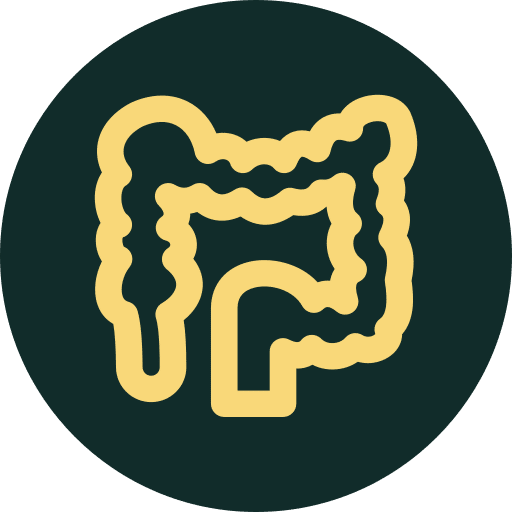
The Long-Term Effects of Alcohol on the Body
Regular drinking—particularly if it is excessive—is very likely to damage a person’s body, regardless of whether they become fully addicted to alcohol. Even moderate drinking can have a negative impact.




The Effects of Alcohol
Wine, beer, and other alcoholic beverages are widely available and—for anyone 21 years or older—entirely legal to purchase. So, it’s not surprising that alcohol is the most commonly consumed intoxicating substance in the United States.
Because it’s legal and readily available for purchase, it’s easy to assume that alcohol is relatively harmless. The truth, however, is that alcohol is sneaky-dangerous—because social or recreational use can easily slide into misuse or addiction. Even relatively small amounts can, over time, be damaging.
Alcohol’s long-term adverse effects on the body are well-documented. Even if a person’s alcohol consumption doesn’t meet the criteria of a substance use disorder (i.e., a full-scale addiction), it can negatively impact their health. (1)
Regular drinking—particularly if it is excessive—is very likely to damage a person’s body, regardless of whether they become fully addicted to alcohol. Even moderate drinking can have a negative impact. For instance, even just one drink per day can increase women’s breast cancer risk. (2)
For those who are concerned about the long-term effects of alcohol on their body—or how alcohol consumption might affect a loved one—this page provides vital information, including:
- The long-term effects of alcohol on different parts of the human body: the brain, heart, liver, kidneys, digestive tract, immune system, and endocrine system.
- The different kinds of cancer associated with long-term alcohol consumption.
- How alcohol consumption can negatively affect an unborn fetus.
Long-Term Effects of Alcohol Use
Individuals may already be aware that drinking can negatively impact their physical and behavioral health. But they may not be aware that alcohol is the third-leading preventable cause of death in the United States! Around 95,000 U.S. citizens (approximately 68,000 men and 27,000 women) die from alcohol-related causes each year. (3)
Over time, alcohol use can result in a host of long-term damaging health conditions, such as:
- Cirrhosis of the Liver
- Stroke
- Dementia
- Heart Disease
- Stomach Ulcers
- Hormonal imbalances
- A Weakened Immune System
- Malnutrition
- Obesity
- Cancer (liver, mouth, esophagus, colon, and breast)
Now, let’s take a closer look at how alcohol affects specific organs and systems in the human body.
How Alcohol Affects the Brain
How does the consumption of alcoholic beverages affect the human brain?
Alcohol is a central nervous system depressant. This means that it “depresses” or inhibits the brain’s communication pathways (neural networks) by reducing its ability to transmit electrical impulses. Since these electrical impulses carry information essential for normal brain function, such disruptions impair the brain’s capacity to work as it should.
When the brain becomes impaired, it becomes harder for the person to think clearly and move with coordination. Their mood and behavior are compromised. And over time, long-term brain damage may occur.

Alcohol Addiction is a Chronic Brain Disease
Scientific evidence shows that alcohol addiction (aka, alcohol use disorder) is a chronic brain disease. As with most conditions, there is the potential for both recurrence and recovery.
As the addiction cycle becomes more severe and an individual continues to ingest large quantities of alcohol, dramatic changes in brain function are produced. These changes in brain physiology further inhibit the person’s ability to control substance use, so the addiction cycle continues. (4)
But even moderate alcohol use can negatively affect the brain and a person’s physical and mental well-being. Just a few drinks, for instance, can alter their memory, coordination, and ability to think clearly.
And long-term alcohol use can cause permanent damage to the brain. When this happens, the symptoms occur even when the person doesn’t have alcohol in their system. One example is the alcohol brain fog often experienced early in recovery.
Other long-term effects of alcohol use on the brain include:
- Insomnia
- Nerve Damage
- Trouble with Balance
- Decreased Attention Span
- Difficulty Forming Thoughts
- Wernicke's Encephalopathy
- Korsakoff's Psychosis ("wet brain")
- Anxiety
- Depression
- Dementia
- Coma

Alcohol Consumption & Vitamin B1 Deficiency
Long-term alcohol consumption can result in a deficiency of vitamin B1 (thiamine). Up to 80% of people struggling with alcoholism develop a vitamin B1 deficiency.
Over time, low thiamine levels can lead to a severe health condition known as Wernicke’s encephalopathy. The symptoms of this disease include extreme mental confusion, muscular incoordination, and the paralysis of nerves responsible for eye movement.
In addition, around 80%–90% of alcoholics who develop Wernicke’s encephalopathy will also develop Korsakoff’s psychosis: also known as “wet brain.” Symptoms of a “wet brain” include forgetfulness, an inability to form new memories, and other severe cognitive impairments, as well as problems with muscle coordination and walking.
How Alcohol Affects the Heart
How does the consumption of alcoholic beverages affect the human heart?
A person may have heard that “a glass of wine a day keeps the doctor away.” The notion that alcohol—especially red wine—is beneficial for heart health has recently been gaining traction in the popular press.
As appealing as this may seem, the scientific evidence is much less clear-cut. Without getting into the details, let’s just say the dangers of alcohol still outweigh, by a significant margin, any potential benefits. (5)
Heavy drinking, in particular, is linked to several heart conditions. And even drinking too much on just one occasion can damage the heart, causing problems such as:
- Arrhythmias (irregular heartbeat)
- Cardiomyopathy (stretching and drooping of heart muscle)
- High Blood Pressure
- Heart Failure
- Stroke
How Alcohol Affects the Liver & Pancreas
How does the long-term consumption of alcoholic beverages affect the liver and pancreas?
The answer to this question is relatively straightforward: Heavy drinking takes a heavy toll on the liver, the physical organ primarily responsible for breaking down toxins, including alcohol.
The liver’s vital functions in the human body include aiding in the digestion of food and filtering waste out of the body. The pancreas and liver produce juices (pancreatic juice and bile, respectively) that support the digestive process. The liver also processes toxins such as alcohol and can be seriously damaged by long-term heavy drinking.
So, alcohol use can lead to a variety of liver health problems, including: (6)
- Steatosis (fatty liver)
- Alcoholic Hepatitis (liver inflammation)
- Fibrosis
- Cirrhosis
Three Stages of Liver Disease
People who drink heavily for a long time may develop liver disease. The three main stages of liver disease are:
1. Fatty Liver (Alcoholic Steatohepatitis)
As its name implies, “fatty liver” is a disease whose main symptom is the accumulation of fat deposits in the liver tissue. Anyone who drinks regularly is at risk of developing alcoholic fatty liver—which may also be accompanied by other symptoms such as fatigue, elevated liver enzymes, and liver enlargement.
2. Alcoholic Hepatitis
With continued alcohol consumption, a person’s fatty liver disease may progress to hepatitis. The main symptoms of hepatitis are widespread liver inflammation, liver cell necrosis (death), scarring, and fibrosis (abnormally large amounts of scar tissue). Other symptoms of hepatitis include jaundice (yellowing of the skin, whites of the eyes, and mucous membranes), pain, fatigue, nausea, fever, loss of appetite, weight loss, and abdominal distension caused by fluid buildup.
3. Alcoholic Cirrhosis
The most advanced stage of liver disease is alcoholic cirrhosis. The main symptoms of cirrhosis are an abundance of scar tissue in the liver and the loss of liver function. Some of the damage from cirrhosis can be reversed if the person quits drinking completely. However, some of the damage may be permanent. Individuals with cirrhosis can have all the symptoms of alcoholic hepatitis, as well as:
- Shrunken and Scarred Liver
- Enlarged Spleen
- Intestinal Bleeding
- Portal Hypertension (high blood pressure in the portal vein)
- Increasingly Severe Jaundice
- Fluid Retention in the Abdomen
- Increasing Confusion (hepatic encephalopathy)
Three Stages of Liver Disease
In addition, alcohol causes the pancreas to produce toxic substances. Over time, these harmful substances can lead to alcoholic pancreatitis—an inflammation of the blood vessels in the pancreas that prevents proper digestion.
Symptoms of pancreatitis include nausea and vomiting, constant and severe abdominal pain (that may radiate to the back), and a distended abdomen. There are both acute and chronic forms of pancreatitis. The most severe cases of acute pancreatitis can be life-threatening.
How Alcohol Affects the Kidneys
How does alcohol affect the long-term health of the kidneys?
The function of the kidneys is to filter waste and regulate the amount of water in the body. Long-term alcohol use can damage the kidneys and make them less efficient. (7)
Alcohol can cause or exacerbate high blood pressure, which, in turn, can contribute to kidney damage. Anything more than two drinks daily can cause high blood pressure.
Alcohol use can also contribute to a disease called rhabdomyolysis—the release of proteins and electrolytes from damaged muscle tissue into the blood. These substances can damage the heart and the kidneys, causing permanent disability or death.
And finally, cirrhosis of the liver can also lead to kidney failure. Specifically, hepatorenal syndrome (HRS) is a kind of progressive kidney failure seen in people with severe liver damage, most often caused by cirrhosis.
How Alcohol Affects the Digestive System
How does alcohol consumption affect the health of the digestive tract?
Excessive alcohol consumption can cause inflammation throughout the gastrointestinal tract (GI tract). Such inflammation can, in turn, increase the risk of several health conditions.
For instance:
- Inflammation of the stomach can cause nausea, belching, heartburn, and bloating.
- Swelling and irritation of the esophagus can create symptoms such as heartburn, acid reflux, and trouble swallowing.
- An inflamed duodenum (a section of the small intestine) can cause burning or cramping in the stomach, gas, pain, nausea, and vomiting.
In short, alcohol consumption can create long-term health problems throughout a person’s digestive system.
How Alcohol Affects the Endocrine System
How does alcohol affect the health of the endocrine system?
The endocrine system regulates communication between glands and organs to maintain a constant internal environment. It utilizes hormones to coordinate and control the body’s metabolism, energy level, reproduction, growth, and development, as well as its response to stress, injury, and mood.
The endocrine system maintains communication with the nervous system, immune system, and circadian mechanism to support its function of preserving the body’s internal homeostasis.
Long-term consumption of excessive amounts of alcohol disrupts the communication between the nervous, endocrine, and immune systems. This creates hormonal disturbances that can negatively affect a person’s physical and behavioral health. (8)
These sorts of alcohol-induced hormonal disruptions affect the entire body and can result in various disorders, such as:
- Stress-Related Conditions
- Reproductive Problems
- Body-Growth Defects
- Thyroid Problems
- Psychological Disorders
- Behavioral Disorders
- Bone Disease
- Cancer
How Alcohol Affects the Immune System
How does long-term alcohol consumption affect the immune system?
Drinking too much can weaken the immune system, which makes the body an easier target for infection and disease. Drinking excessively, even occasionally, impairs the body’s ability to ward off infections for up to 24 hours after getting drunk.
Chronic drinkers are more susceptible to contracting diseases like tuberculosis and pneumonia than people who do not drink too much. In addition, alcohol consumption increases the likelihood of: (9)
- Sepsis
- Acute Respiratory Stress Syndromes
- Alcoholic Liver Disease
- Certain Cancers
- Postoperative Complications
- Slower and Less Complete Recovery from Infection and Physical Trauma
- Poor Wound Healing
- Cancer
Long-Term Alcohol Use & Cancer
Does long-term alcohol use increase the risk of cancer?
Yes—excessive drinking has been linked to an increased risk of many different types of cancer. The National Toxicology Program of the U.S. Department of Health and Human Services lists the consumption of alcoholic beverages as a known human carcinogen.
Scientific evidence has shown that the more alcohol a person drinks (especially regularly and over time), the higher their risk of developing alcohol-associated cancer. The kinds of cancer whose risk increases with alcohol consumption include: (10)

Liver Cancer
Alcohol consumption is associated with a wide variety of liver diseases. And as liver disease progresses, the risk of liver cancer increases.
So, people who contract the alcohol-induced liver disease are at a higher risk of developing liver cancer. And those with cirrhosis are the most vulnerable to developing liver cancer.

Head and Neck Cancer
People who consume three drinks daily increase their risk of head and neck cancers by 2-3 times. This includes cancers of the oral cavity, pharynx, and larynx.

Esophageal cancer
Alcohol consumption is associated with an increased risk of esophageal cancer called esophageal squamous cell carcinoma.

Breast Cancer
For every ten grams of alcohol consumed daily, the risk of breast cancer increases by 12%.

Colorectal cancer
Compared with non-drinkers, those who consume three alcoholic drinks daily are around twice more likely to develop colon cancer.
The Effects of Alcohol Use During Pregnancy
What are the dangers of drinking alcohol during pregnancy?
Consuming alcohol while pregnant poses a significant risk to the developing fetus. There is no safe type or amount of alcohol to drink during pregnancy. (11)
Fetal alcohol spectrum disorders are a group of physiological disorders that can occur in a person whose mother drank alcohol during pregnancy. This includes women who drink before they know they’re pregnant.
These disorders present in the fetus, infant, or young child can include:
- Abnormal Facial Features
- Small Head Size and Low Body Weight
- Sleep Problems as an Infant
- Vision and Hearing Problems
- Short Stature
- Kidney, Heart, and Bone Issues
- Cognitive and Behavioral Issues (such as poor concentration, memory problems, hyperactivity, and learning disabilities)
Professional Help is Available
NIAAA Director Dr. George F. Koob sums up the severe health consequences of alcohol use: “The current findings suggest that alcohol-related deaths involving injuries, overdoses, and chronic diseases are increasing across a wide swath of the population. The report is a wakeup call to the growing threat alcohol poses to public health.” (12)
The good news is that alcohol use can be decreased or eliminated. Sometimes, a person may be able to enact this change independently. If alcohol use has escalated into an addiction, they will most likely require professional help.
The first step on the recovery from alcohol addiction journey is to locate a licensed and accredited detox and rehab program, such as New Method Wellness.
New Method Wellness is an addiction treatment center specializing in treating substance abuse, addiction, and underlying behavioral health issues. We offer both inpatient and outpatient programs.
Our on-site drug and alcohol detox facilities and alcohol rehab program is staffed by highly-trained and compassionate medical and psychiatric experts. Our life-skills and wellness program offer additional support for addiction recovery and long-lasting sobriety.
Every client is paired with two therapists from our multidisciplinary team of licensed clinicians and addiction professionals, ensuring the individualized high-quality care you deserve.
We employ a wide range of therapies: cognitive-behavioral therapy, group therapy, family therapy, equine-assisted therapy, massage therapy, nutritional counseling, yoga therapy, meditation, acupuncture, and much more.
Our addiction-treatment program is designed not only to help a person get sober but also to address the underlying cause of their addiction and create a better life.
References
[1] National Institute on Alcohol Abuse and Alcoholism. (n.d.). Alcohol’s Effects on the Body.
https://www.niaaa.nih.gov/alcohols-effects-health/alcohols-effects-body
[2] Aaron White, PhD, I-Jen P. Castle, PhD, Ralph Hingson, ScD, Patricia Powell, PhD. Using death certificates to explore changes in alcohol-related mortality in the United States, 1999–2017 Alcoholism: Clinical and Experimental Research. Published online January 8, 2020.
[3] National Institute on Alcohol Abuse and Alcoholism. Alcohol Facts and Statistics.
[4] The Neurobiology of Substance Use, Misuse, and Addiction.
https://addiction.surgeongeneral.gov/sites/default/files/chapter-2-neurobiology.pdf
[5] Johns Hopkins Medicine. (2021). Alcohol and heart health: separating fact from fiction.
[6] Johns Hopkins Medicine. (2021). Alcohol-induced liver disease.
https://www.hopkinsmedicine.org/health/conditions-and-diseases/alcoholinduced-liver-disease
[7] Kidney Foundation. (2020). Alcohol and your kidneys.
https://www.kidney.org/atoz/content/alcohol
[8] Rachdaoui N, Sarkar DK. Effects of alcohol on the endocrine system. Endocrinol Metab Clin North Am. 2013 Sep;42(3):593-615.
[9] Sarkar D, Jung MK, Wang HJ. Alcohol and the Immune System. Alcohol Res. 2015;37(2):153–5.
https://www.ncbi.nlm.nih.gov/pmc/articles/PMC4590612/
[10] National Cancer Institute. Alcohol and Cancer Risk.
https://www.cancer.gov/about-cancer/causes-prevention/risk/alcohol/alcohol-fact-sheet
[11] Centers for Disease Control and Prevention. (2020). Alcohol use in pregnancy.
[12] National Institutes of Health. (2020). Alcohol-related deaths increasing in the United States.
https://www.nih.gov/news-events/news-releases/alcohol-related-deaths-increasing-united-states
TAKE THE FIRST STEP
From all of us at New Method Wellness co-occurring treatment center, we wish you peace and serenity in knowing that you or your loved one will get the necessary help.
ACCREDITED BY:

